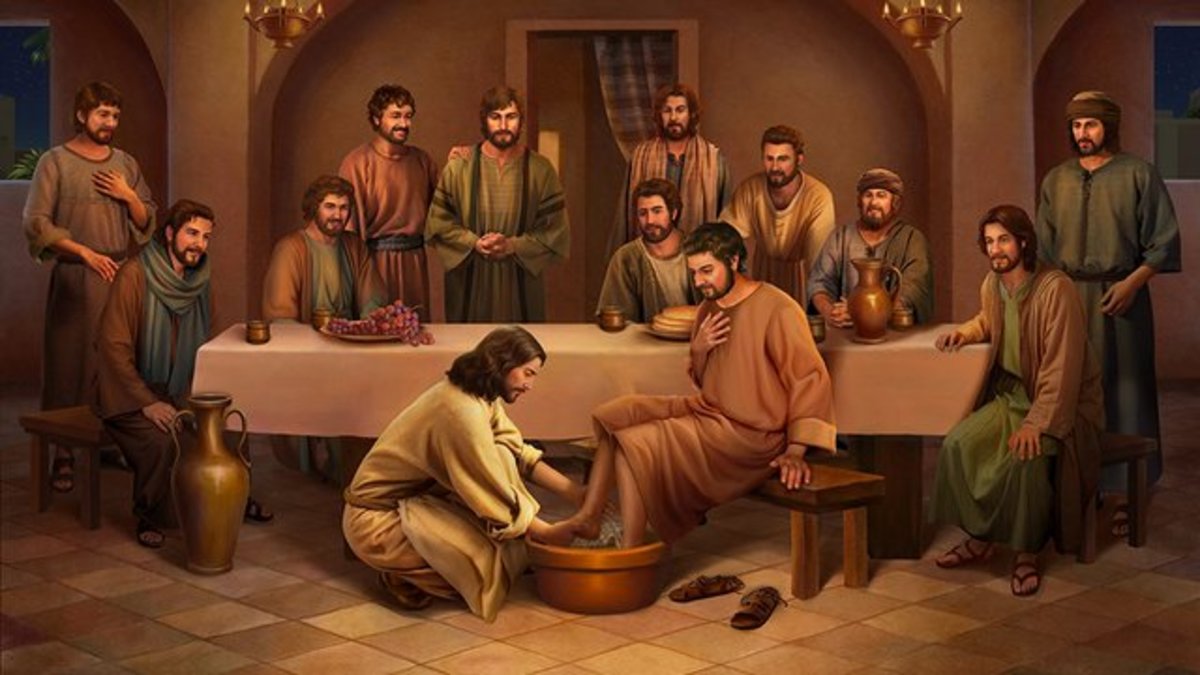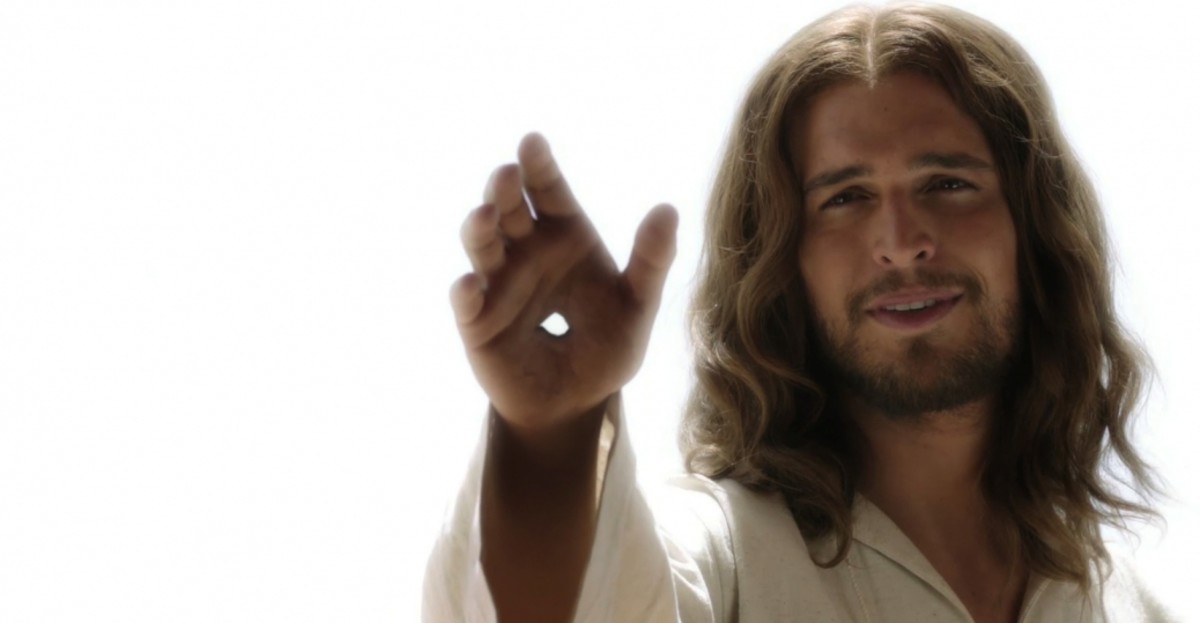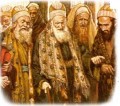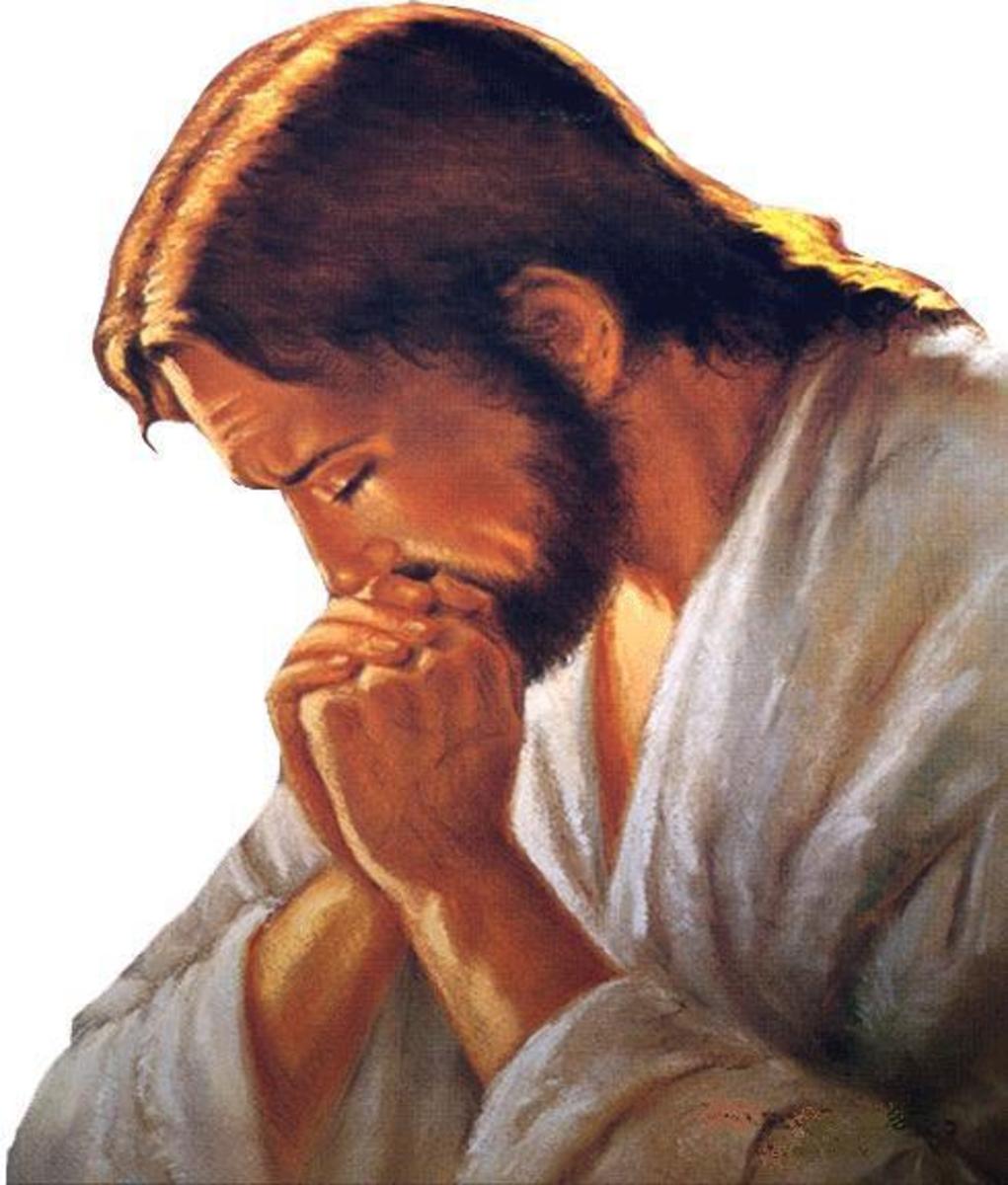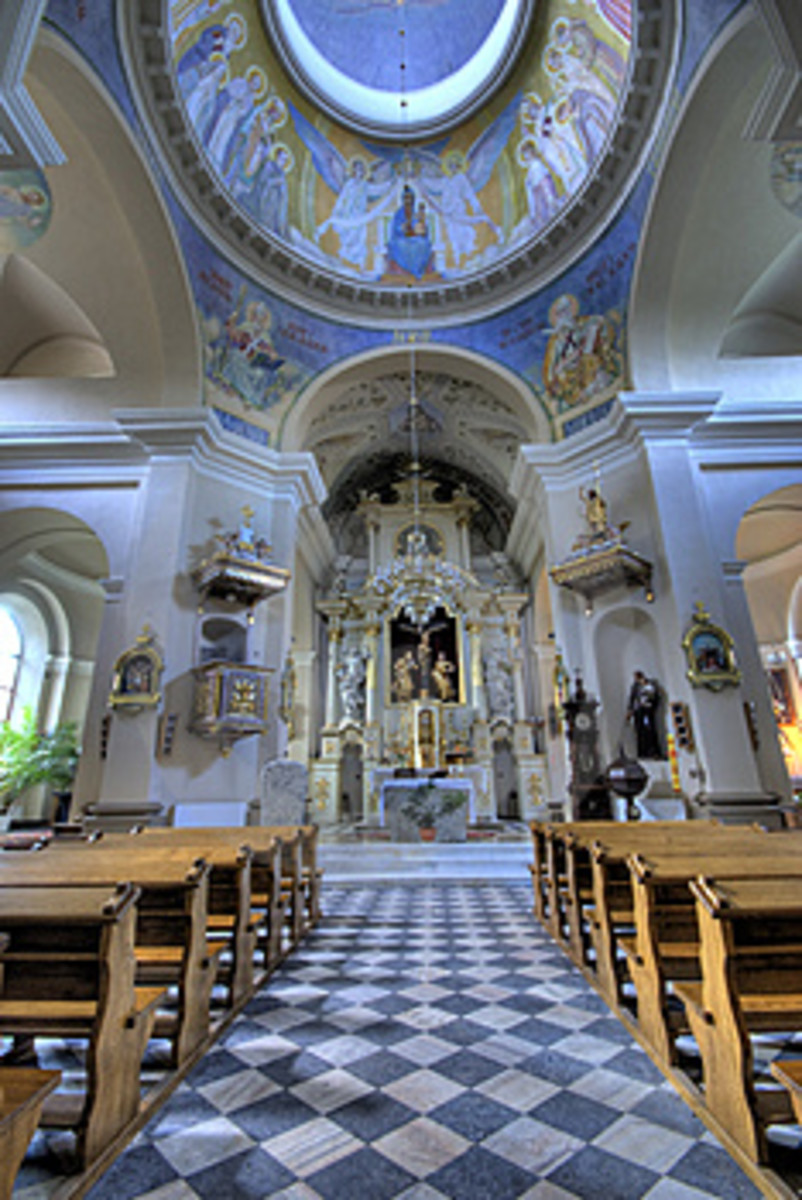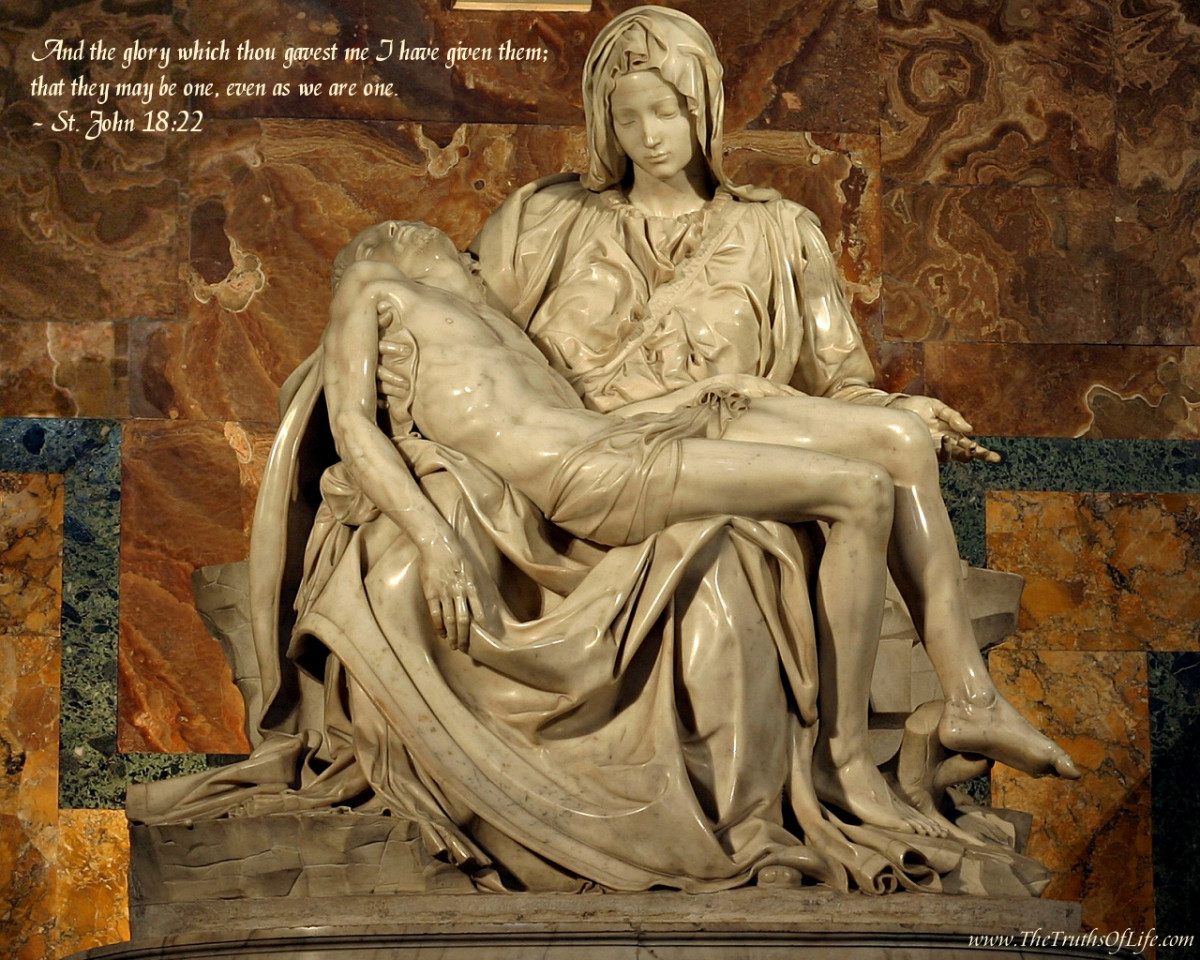Restoring The Sabbath Rest

Jesus' Counter Question, “Have you not read?”
One Sunday morning, a mother went in to wake her son and tell him it was time to get ready for church. He replied, “I’m not going.” “Why not?” she asked. “I’ll give you two good reasons,” he said. “One, they don’t like me, and two, I don’t like them.” His mother replied, “I’ll give YOU two good reasons why you SHOULD go to church. One, you’re 54 years old, and two, you’re the pastor!”[i]
The sabbath is the weekly day of rest and worship of the Jews. In the book of Genesis we read the account where God, after finishing the work he had done on the seventh day, blessed and hallowed the day because in it he rested from his work of creation (Gen 2:1-3). The word “sabbath” is not mentioned in throughout the Genesis account save for the reference to a seven-day period in connection to the flood (7:4, 10; 8:10, 12) and Jacob’s years at Haran (29:27-28). The sabbath surfaces in the book of Exodus right before the people reach Mount Sinai. God provided the Israelites with manna and doubled the food supply on the sixth day simply because the seventh day of rest was to be observed. Moses said to the people what the LORD has commanded in Exodus 16:23, “Tomorrow is a day of solemn rest, a holy sabbath to the LORD…”
And shortly after reaching Mount Sinai, God gave Moses the Ten Commandments with the fourth commandment written in Exodus 20:8 saying, “Remember the sabbath day, and keep it holy. Six days you shall labor and do all your work. But the seventh day is a sabbath to the LORD your God; you shall not do any work—you, your son or your daughter, your male or female slave, your livestock, or the alien resident in your towns. For in six days the LORD made heaven and earth, the sea, and all that is in them, but rested the seventh day; therefore the LORD blessed the sabbath day and consecrated it.”
The Sabbath Problem
I grew up in a God fearing family. When I was a young boy my parents would constantly remind me, “Gicky, don’t forget to go to church.” And I would go to church for all the wrong reasons: to please my parents, to socialize with my friends who also went to church to please their parents, and to meet girls who also went to church to please their parents. I’ll have to admit that there were those specific instances when I went to church to attend my own baptism, first communion, confirmation, and wedding or to simply pay my respects and please God out of a guilty conscience. But the bottom line was that going to church was a social event. It was rarely a spiritual thing with me.
When I moved out of my parents’ home and went abroad to college I had no time for church. As far as I was concerned, it was a waste of time. As a full-time student I worked hard six days a week and on the seventh day I played even harder. And every now and then, my mom would call long distance and remind me saying, “Gicky, don’t forget to go to church.” During my second year in college, my mother came for a visit and stayed with me. When Sunday morning came around, she asked me if I attended church on a regular basis. With a straight face I nodded and said, “Mom, I have been attending church every Sunday just like I promised.” Then she said to me, “Well, what are we waiting for? It’s Sunday morning. Take me to your church.”
Now I’m driving down the road and I’m praying, “Dear Lord, please help me find a church in this neighborhood!” Thank God I come across this a church just five blocks from where I live. The building looked like an old traditional Spanish mission. The kind of church I was desperately looking for. My mom asks me once again, “So this is the church you go to?” And I say, “Every Sunday just like I promised.” So I usher her in through the church portals and sit her in my so-called favorite pew. The priest approaches the pulpit and starts the service in fluent Spanish. I am sitting there, half panicked and I’m praying, “Please God, make him stop speaking in Spanish and let’s get on with the church service in English? The priest finally shuts up but the church choir in the balcony bursts in Spanish songs of worship. From the corner of my eye I can see my mom staring at her son who has never attended a Spanish church service. And for the life of me, the entire church service was in said in Spanish! As we headed home, I ask mom, “Es muy bien mi church Mama?” She turns to me sporting one of those ‘I got you’ grins and says, “So this is how you spend your Sunday mornings.”
The Sabbath Picture
Luke 6:1-11 gives us a surprising picture of how Jesus observed the sabbath. It also shows us how the religious leaders in his day thought the sabbath should be spent. The passage throws much needed light on the subject of the sabbath and God’s divine purpose for humankind during the observance of this holy day of rest:
One sabbath while Jesus was going through the grainfields, his disciples plucked some heads of grain, rubbed them in their hands, and ate them. But some of the Pharisees said, “Why are you doing what is not lawful on the sabbath?” Jesus answered, “Have you not read what David did when he and his companions were hungry? He entered the house of God and took and ate the bread of the Presence, which it is not lawful for any but the priests to eat, and gave some to his companions?” Then he said to them, “The Son of Man is lord of the sabbath.”
On another sabbath he entered the synagogue and taught, and there was a man there whose right hand was withered. The scribes and the Pharisees watched him to see whether he would cure on the sabbath, so that they might find an accusation against him. Even though he knew what they were thinking, he said to the man who had the withered hand, “Come and stand here.” He got up and stood there. Then Jesus said to them, “I ask you, is it lawful to do good or to do harm on the sabbath, to save life or to destroy it?” After looking around at all of them, he said to him, “Stretch out your hand.” He did so, and his hand was restored. But they were filled with fury and discussed with one another what they might do to Jesus.
In a book entitled Manners and Customs of Bible Lands, the author cites the ‘farmer’s law of hospitality’ in regard to eating grain in the field: “When the grain in the wheatfield has passed the “milk stage,” and has begun to harden, it is then called “fereek” and is considered to be delicious to eat raw.”[ii] This practice involved the plucking of the heads, rubbing it in the hands, and eating it. “For centuries the unwritten law of hospitality has been that wayfarers may eat of the wheat as they pass by or through a field, but they must not carry any away with them.”[iii] The law of God made provision for this same privilege. In the book of Deuteronomy 23:25 it says, “If you go into your neighbor’s standing grain, you may pluck the ears with your hand, but you shall not put a sickle to your neighbor’s standing grain.”
The Sabbath Police
Jesus first encountered the opposition of the scribes and the Pharisees in a crowded home (5:19). He comes in contact with them during a great banquet (5:29). And in this passage Jesus’ experiences his third confrontation with this religious group. When the Pharisees leveled an accusation against Jesus’ disciples, it wasn’t for eating the heads of grain as they were going through the fields, but because they did it on the sabbath.
In a reference work entitled The New International Dictionary of the Bible the article cites the two whole treatises in the Talmud.[iv] These writings are devoted to the details of the sabbath observance.[v] One of these works, the Shabbath, lists the thirty-nine kinds of actions that are prohibited on the sabbath.
I thought I’d highlight one of these prohibitions from this lengthy list of do’s and don’ts: “making two cords, weaving two threads, separating two threads, making a knot, untying a knot, sewing two stitches, tearing two stitches.”[vi] If that wasn’t enough, the teachers of the law saw this knot-tying prohibition as way too general. The law abiding Jew needed to know the kinds of knots that were prohibited. It was laid down in the law that a knot that could be untied with one hand was allowable.[vii] “A woman could tie up her undergarment, and the strings of her cap, those of her girdle, the straps of her shoes and sandals, of skins of wine and oil, of a pot with meat. She could tie a pail over the well with a girdle, but not with a rope.”[viii]
As rules and regulations evolve it can become unreasonable to the point of being completely ridiculous. I was listening to the radio the other day and heard the story of a man in Colorado who plays Santa Claus every Christmas season. As was his custom, he goes to the local clinic to get his flu shot. Since there was a national shortage of this vaccine its administration has been regulated with rules. At the clinic the man was denied his flu shot because he was 62 years old and not the permissible age of 65. He is taken aback and tries to reason with the administrative authorities, “But ten thousand kids sit on my lap every Christmas!” Even still he was refused his annual flu shot.
In the case of Jesus’ disciples, the scribes and the Pharisees or ‘sabbath police’ interpreted the act of “plucking the heads of grain” as a form of “harvesting.”[ix] If you take the scribal interpretation a bit further, the disciples were guilty for not only “reaping” but “rubbing the grain in their hands” was tantamount to “threshing” or even “grinding.”[x] The illegal actions of Jesus’ disciples are called into question in light of their numerous human made religious rules and regulations imposed upon this fourth commandment over the years.
The Sabbath Parallel
Jesus comes to the defense of his disciples. He spoke against the religious establishment of his day. He bypassed the scribal interpretations that formulated innumerable legal restrictions for the observance of the sabbath. He went straight to the scriptures, the source of all their legalistic squabbles. In effect Jesus said, “Well that’s how you interpret my disciples’ actions on the sabbath, but what does the bible say.” In 6:3 Jesus counters this grain-picking charge with a question saying, “Have you not read what David did when he and his companions were hungry? He entered the house of God and took and ate the bread of the Presence, which it is not lawful for any but the priests to eat, and gave some to his companions?”
Jesus refers to the little story of David and his companions. During that period, David was on the run from King Saul. And although he was forced to roam the countryside with his group of followers, he had every right to override King Saul’s rule and seize the kingdom for himself. David may not have yet been officially enthroned, but it was the will of God that Samuel the priest anoint him Israel’s true king. Likewise, God had anointed Jesus in John’s baptism. Jesus and his disciples parallel the likes of David and his companions. They are hunted and spied upon by the religious leaders. According to N. T. Wright, a formidable New Testament scholar, “The Pharisees are like Saul’s servant Doeg the Edomite, spying on him and then running to off to tell the authorities.”[xi]
Jesus and his disciples may have entered the grainfield, but David and his companions entered the house of God. The one may have ‘plucked and rubbed the heads of grain’ as provided by the unwritten farmer’s law, but the latter ‘took and ate the bread of the Presence’ which was prohibited by written Mosaic law. The bread of the Presence or the Showbread, in Hebrew was called lehem happãnîm, which literally meant “the bread of the face.”[xii] The showbread was laid on a coffee-size table in two rows. It consisted of twelve loaves representing Israel’s twelve tribes and their constant ‘face-to-face fellowship’ with God. Every sabbath the old bread was replaced by a fresh batch (1 Sam 21:6). The old loaves were reserved for the priests. This was the consecrated bread that David took to feed his hunger and shared with his companions to appease their hunger pangs as well.
In the previous passage Jesus attended a great banquet and shared a meal with tax collectors and sinners. The Pharisees and their scribes complained about the company that Jesus kept. In a parallel passage in Matthew 9:13 Jesus’ answer makes reference to the book of Hosea 6:6 where it says, “I desire mercy, not sacrifice.”In its entirety the verse in Hosea reads, “For I desire steadfast love and not sacrifice, the knowledge of God rather than burnt offerings.”Hosea’s message to the northern kingdom of Israel was that sacrifices were unacceptable to God if it was offered without an understanding of God’s heart.
Jesus, the Son of David (Mt 1:1), like his kingly ancestor, was also a man after God’s heart (1 Sam 13:14). Mercy or a steadfast love in the knowledge of God’s will was at the heart of Jesus’ ministry. What pleased God was that his Son’s heart was devoted to Him. And through the heart of Jesus flowed love and mercy. He is the Son whom the Father loves; in him He is well pleased (Lk 3:22). On the other hand, the Pharisees’ religious observance, like loveless burnt offerings, made them blind to the hurting needs of the people and deaf to the cries of their hungry hearts. In the eyes of God, their sacrificial way of life was void of mercy and compassion but full of contempt and condemnation.
If David could take priority over the Mosaic law, how much more the greater Son of David? In verse 5 Jesus said to the Pharisees, “The Son of Man is lord of the sabbath.”
This statement implies that Jesus, the lord of the sabbath gives us the sense that he is the actual embodiment of the sabbath. Jesus did not set the sabbath laws aside nor did he water it down. Rather he moved in mercy and lived out the spirit of the sabbath’s true intention. For it is the person of Jesus who provides everything the sabbath was supposed to supply God’s people namely, peace, rest, restoration, communion.[xiii] In this manner, Jesus, the Son of Man, the lord of the sabbath has the authority to deliver the sabbath from the heavy burden imposed upon it by the religious leaders and protect it from the wearisome scribal interpretations of the law.[xiv] In Matthew 11:28 Jesus calls out to those who are yoked to this enslaving system saying, “Come to me, all you that are weary and are carrying heavy burdens, and I will give you rest. Take my yoke upon you, and learn from me; for I am gentle and humble in heart, and you will find rest for your souls. For my yoke is easy, and my burden is light.”
Continued on: http://hubpages.com/hub/Restoring-the-Sabbath-Rest-Part-2
Endnotes
[i] Clean Pastors Jokes, “Time For Church” (jokes.christiansunite.com, 2004).
[ii] Fred H. Wright, Manners and Customs of Bible Lands (Chicago: Moody Press, 1953), 179.
[iii] Abraham Mitre Rihbany, The Syrian Christ (Boston: Houghton Mifflin Company, 1916), 290-291.
[iv] By definition the Talmud is a collection of Jewish writings that make up the basis of Jewish religious law, consisting of the early scriptural interpretations (Mishnah) and the later commentaries on them (Gemara).
[v] J. D. Douglas, Rev. Ed. and Merrill C. Tenney, Gen. Ed., The New International Dictionary of the Bible (Grand Rapids: Zondervan Publishing House, 1987), 877.
[vi] Ibid.
[vii] Ibid.
[viii] Ibid.
[ix] Joel B. Green, The International Commentary of the New Testament: The Gospel of Luke (Grand Rapids: William B. Eerdmans Publishing Co., 1997), 253.
[x] Ibid.
[xi] N. T. Wright, Jesus and the Victory of God (Minneapolis: Fortress Press, 1996), 394.
[xii] Joseph A. Fitzmyer, The Anchor Bible: The Gospel According to Luke (X-XXIV) (New York: Doubleday, 1983), 609.
[xiii] R. Kent Hughes, Luke, Volume One: That You May Know the Truth (Wheaton: Crossway Books, 1998), 201.
[xiv] J. C. Ryle, The Crossway Classic Commentaries: Luke (Wheaton: Crossway Books, 1997), 74.
© 2009, Gicky Soriano. All rights reserved.
Related hubs:
- Restoring the Sabbath Rest - Part 2
In Luke 6:1 the phrase “On another sabbath” serves as a bookend that holds the previous Sabbath story and the following sabbath story side by side. On the “one sabbath,” the scribes and the...
Recommended reading:


